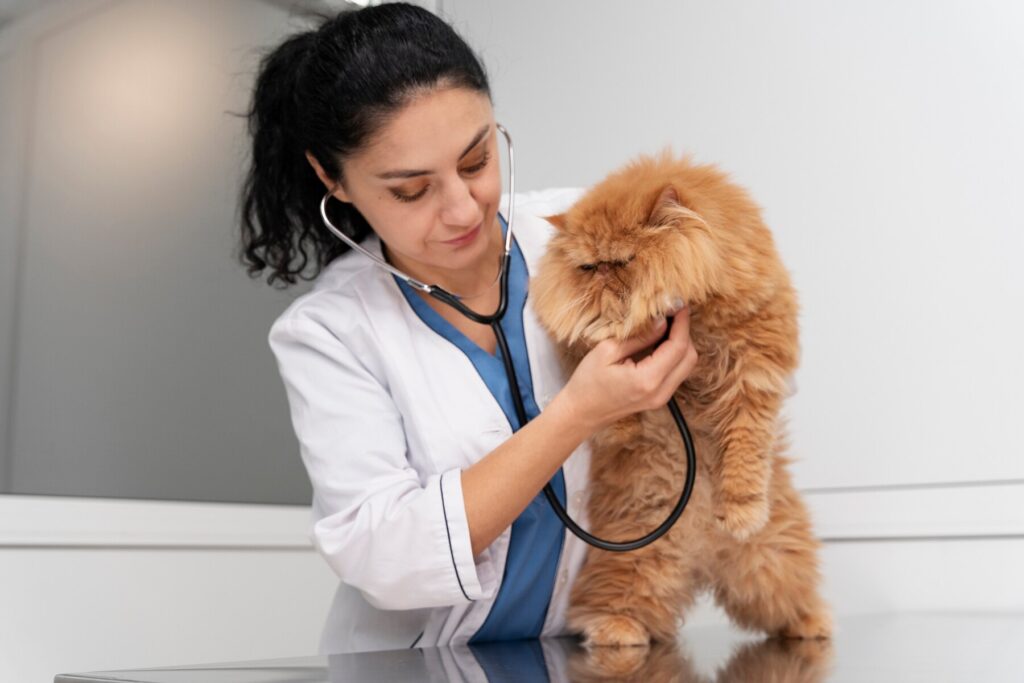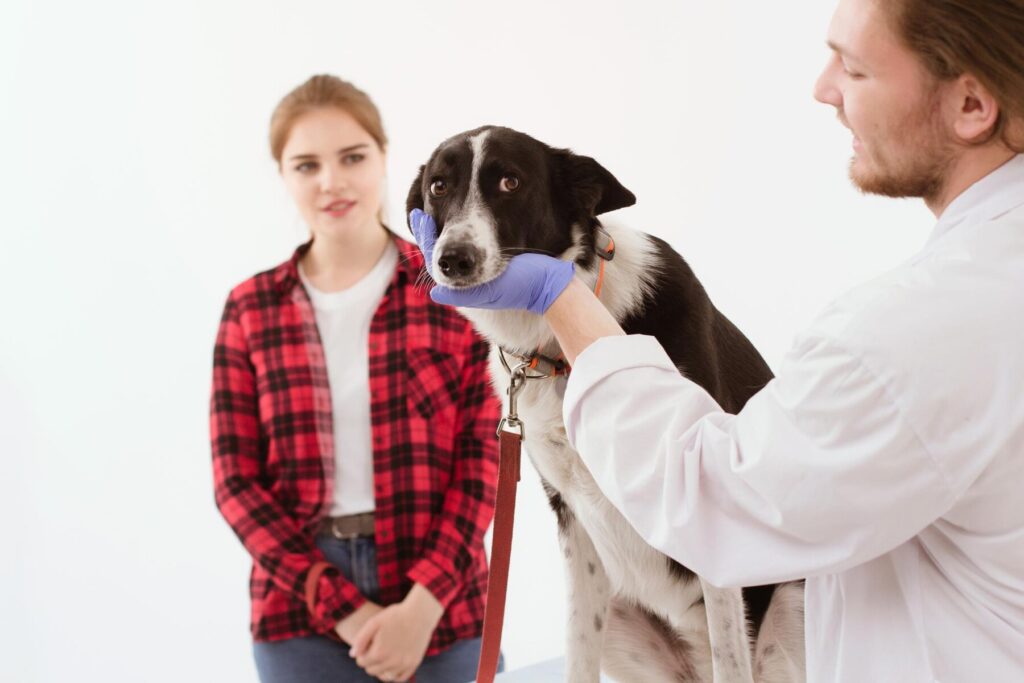As a responsible pet owner, it’s essential to be aware of the common health problems that can affect your furry friend. By knowing the signs and symptoms of these issues, you can take proactive steps to prevent them and ensure your pet lives a happy and healthy life. Here are the top 10 common pet health problems and how to prevent them:
Obesity:
Pet obesity is a significant health concern that can lead to a range of serious health problems, including diabetes, arthritis, heart disease, and certain types of cancer. To prevent obesity in your pet, it’s essential to ensure they get regular exercise and follow a balanced diet. This can include activities like walking, running, or playing fetch, as well as feeding a high-quality pet food that meets their nutritional needs. Monitoring your pet’s food intake is also crucial, as overfeeding can quickly lead to weight gain and obesity. Avoid giving your pet table scraps or high-calorie treats, and instead opt for low-calorie snacks and healthy rewards. By maintaining a healthy weight, you can help reduce the risk of obesity-related health problems and ensure your pet lives a long, happy, and healthy life. Regular weigh-ins and body condition assessments with your veterinarian can also help identify any potential weight issues early on, allowing for prompt intervention and treatment.
Dental Problems:
Dental problems are a common health issue in pets, and can cause significant discomfort, pain, and even lead to more serious health problems if left untreated. Tartar buildup, gum disease, and tooth decay are just a few examples of dental issues that can affect pets. Regular dental check-ups with your veterinarian are essential to identify and address any potential problems early on. Brushing your pet’s teeth regularly can also help remove plaque and tartar, reducing the risk of dental issues. Additionally, providing dental chews or toys can help promote good oral health by reducing tartar and plaque buildup. By prioritizing your pet’s dental health, you can help prevent painful dental problems, bad breath, and even reduce the risk of related health issues such as kidney disease and heart problems. A healthy smile can go a long way in ensuring your pet’s overall health and well-being.

Fleas and Ticks:
Fleas and ticks are external parasites that can cause significant discomfort and health problems for pets. These tiny creatures can lead to allergic reactions, skin irritation, and even transmit diseases like Lyme disease, Rocky Mountain spotted fever, and tapeworms. To protect your pet, it’s essential to use preventative medications, such as topical treatments, oral medications, or flea collars, as prescribed by your veterinarian. Regularly inspecting your pet for signs of infestation, such as flea dirt, eggs, or actual fleas and ticks, can also help identify problems early on. Maintaining a clean environment is also crucial, including washing your pet’s bedding, vacuuming carpets and furniture, and treating your yard for fleas and ticks. By taking these steps, you can reduce the risk of flea and tick infestations and protect your pet from the discomfort and diseases they can transmit. Early detection and prevention are key to keeping your pet safe and healthy.
Heartworms:
Heartworms are a serious and potentially life-threatening parasite that can infect pets, causing severe heart and lung problems. These parasites are transmitted through the bite of an infected mosquito, which deposits heartworm larvae into the pet’s bloodstream. If left untreated, heartworms can grow and multiply, leading to damage to the heart, lungs, and surrounding blood vessels. To prevent heartworms, it’s essential to administer regular preventative medication, especially during peak mosquito seasons. This can include topical treatments, oral medications, or injectable preventatives, as prescribed by your veterinarian. By providing year-round prevention, you can significantly reduce the risk of heartworm infection and protect your pet from the potentially devastating consequences of this disease. Regular testing and monitoring can also help detect any potential infections early on, allowing for prompt treatment and minimizing the risk of long-term damage.

Urinary Tract Infections:
Urinary tract infections (UTIs) are a common health issue in pets, causing significant discomfort, pain, and potentially leading to more severe health problems if left untreated. UTIs occur when bacteria infect the urinary tract, including the kidneys, bladder, and urethra. To help prevent UTIs, ensure your pet has access to plenty of fresh water, which can help flush out bacteria and reduce the risk of infection. Monitoring your pet’s litter box habits is also crucial, as changes in urination frequency, accidents in the house, or straining to urinate can be indicative of a UTI. Additionally, look out for signs such as blood in the urine, strong-smelling urine, or excessive licking of the genital area. If you suspect a UTI, consult with your veterinarian, who can diagnose and treat the infection with antibiotics. By being proactive and attentive to your pet’s urinary health, you can help prevent UTIs and ensure your pet’s overall well-being.
Skin Allergies:
Skin allergies are a common issue in pets, causing discomfort, itching, scratching, and potentially leading to skin infections. These allergies can be triggered by a variety of factors, including environmental allergens like pollen, dust, and mold, as well as food allergies or sensitivities to certain substances. To manage skin allergies in your pet, it’s essential to identify and avoid potential allergens, which may involve changing their diet or environment. Regular grooming is also crucial, as it can help remove allergens and soothe irritated skin. Consult with your veterinarian for guidance on managing skin allergies, as they can recommend the best course of treatment, including medicated shampoos, topical treatments, or oral medications. By working with your veterinarian and taking steps to manage skin allergies, you can help reduce your pet’s discomfort and prevent secondary skin infections, improving their overall quality of life.
Ear Infections:
Ear infections are a common health issue in pets, causing significant discomfort, pain, and potentially leading to more severe health problems if left untreated. Regular ear cleaning is essential to prevent the buildup of wax, dirt, and debris, which can contribute to infection.
Monitor your pet’s ears regularly for signs of infection, such as redness, swelling, discharge, or a strong odor. Additionally, watch for behavioral changes like head shaking, ear scratching, or sensitivity to touch. If you notice any of these signs, seek veterinary care promptly, as ear infections can lead to serious complications, including hearing loss or chronic pain. Your veterinarian can diagnose and treat the infection, providing guidance on ear care and prevention to help keep your pet’s ears healthy and infection-free. By being proactive and attentive to your pet’s ear health, you can help prevent unnecessary discomfort and ensure their overall well-being.

Gastrointestinal Issues:
Gastrointestinal issues, such as diarrhea and vomiting, are common health problems in pets, often caused by dietary indiscretion, infections, or food allergies. Feeding a balanced and nutritious diet is essential to maintaining your pet’s digestive health. Avoid giving your pet table scraps or human food, as this can disrupt their digestive system and lead to gastrointestinal issues. If your pet experiences persistent diarrhea, vomiting, or other gastrointestinal symptoms, seek veterinary care to determine the underlying cause and receive proper treatment. Your veterinarian may recommend a specific diet, medication, or other therapies to help manage your pet’s symptoms and prevent future episodes. By being mindful of your pet’s diet and seeking veterinary care when needed, you can help prevent gastrointestinal issues and ensure your pet’s overall health and well-being. Early intervention and proper treatment can make a significant difference in resolving gastrointestinal problems and preventing long-term damage.
Arthritis:
Arthritis is a common health issue in pets, particularly as they age, causing significant pain, stiffness, and discomfort. Maintaining a healthy weight is crucial, as excess weight can put additional strain on joints, exacerbating arthritis symptoms. Regular exercise, such as gentle walks or playtime, can help keep joints mobile and improve overall health. Consider incorporating joint supplements, such as glucosamine and chondroitin, into your pet’s diet, as these can help reduce inflammation and promote joint health. In some cases, medication may be necessary to manage arthritis symptoms, and your veterinarian can work with you to develop a treatment plan tailored to your pet’s needs. By taking a proactive approach to managing arthritis, you can help improve your pet’s quality of life, reduce pain and discomfort, and keep them active and mobile for years to come. Early intervention and proper management can make a significant difference in your pet’s comfort and well-being.
Parasites:
Parasites, such as hookworms, roundworms, and tapeworms, pose a significant health risk to pets, causing a range of problems from digestive issues to life-threatening conditions. These parasites can be transmitted through contaminated soil, feces, or infected animals, making regular deworming medication crucial for prevention. Maintaining good hygiene practices, such as promptly cleaning up after your pet and disposing of feces properly, can also help reduce the risk of parasitic infection. Monitoring your pet’s stool for signs of parasites, like worms or eggs, is essential for early detection and treatment. By working with your veterinarian to develop a parasite control plan, you can protect your pet from the dangers of parasitic infections and ensure their overall health and well-being. Regular check-ups and preventative care can go a long way in keeping your pet safe from these harmful organisms.
By being aware of these common pet health problems and taking proactive steps to prevent them, you can help ensure your furry friend lives a happy and healthy life. Regular veterinary check-ups, a balanced diet, and a safe and clean environment can go a long way in preventing these issues and promoting overall pet health.


5 thoughts on “Top 10 Common Pet Health Problems and How to Prevent Them”